When it comes to the advice “find your passion’, it can sometimes make someone feel more pressurized, scared, and intimidated rather than motivated, happy, and charged-up.
- There are a variety of reasons people react poorly to the advice of “finding your passion.”
- Some reasons include past experiences of being punished for having passions and self-hatred, which may make people feel that they don’t deserve to pursue pleasure.
- People may also fear the exposure that goes along with declaring one’s passion or think of passions as a waste of time, for example.
- Because of our fears and history, courage may be needed to pursue “finding your passion.”
These three words might comprise the commonest, best-meant advice proffered to those of us who are bored, sad, anxious, afraid, awkward, lonely, avoidant, self-hating, or struggling with recovery.
Find your passion. It means: Seek joy and purpose. Live your truth, whether that comprises rock-climbing, ferret-raising, dubstep, learning Dutch, anything. Remember and reclaim what you love.
It sounds good: sparkling with the charm of invitation, invocation, inspiration, surging with the hot pulse of permission, which is crucial for those of us who are frozen, frightened, nonstarting, and stuck.
But however they glimmer, those three words are often landmines. “Find your passion” sounds so easy and engaging, but can feel to hearers like a threat, a trick, a trap, a taunt, a fairytale-ish, spin-flax-into-gold ordeal.
Why do those words often wield the opposite of their fine intent? What makes this phrase so loaded? What suffering lurks in its seeming simplicity? Here are 12 possibilities.
Related: If You Haven’t Yet Found Your Passion In Life, This Is For You
12 Reasons Why “Find Your Passion” Can Be the Worst Advice
1. You’ve Been Punished For Having Passions.
By someone somewhere back there who disapproved or did not understand or was dispassionate or cruel, thus enviously, ignorantly, furiously harmed, humiliated, or excluded you.
2. You Think You Don’t Deserve It.
Self-hatred declares some of us unworthy not just of feeling pleasure but even of seeking it. Self-hatred warns us that we barely merit mere existence and no unearned extras are allowed.
3. You Fear Exposure.
Declaring, much less pursuing, heartfelt passions reveal truths about oneself. This can feel unsafe for those who have been compelled to keep secrets, inhabit closets, and/or, for their own protection, lie.
4. Finding Your Passion Means Making A Choice.
And choice-making is dangerous because the chance of choosing wrongly is huge and wrong choices wreak punishment, panic, and regret. Better to choose nothing than choose wrongly.
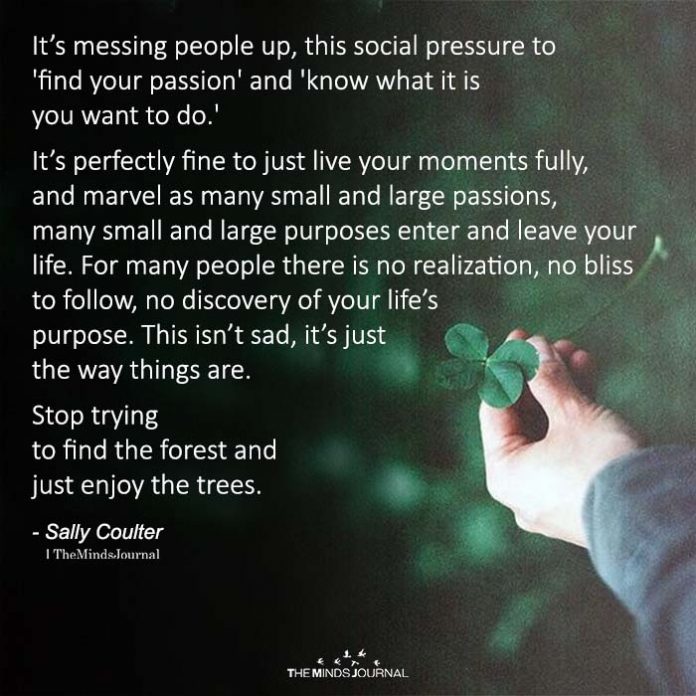
5. You Think Passion’s A Myth Pursued By Stupid Suckers.
Warned against “wasting time” better spent “responsibly,” you’ve been shamed into scorning quests as silly fantasies. So being urged to find yours feels demeaning.
Related: 4 Ways to Find The Purpose Of Your Life
6. You’ve Learned That Passion Hurts.
Through punishment but also loss. Loving something that proved prohibitively costly, risky, fragile, temporary, or impossible left you heartbroken, wrecked.
7. You Fear That Once Found, It Will Injure You — Or Worse.
Some of us live in constant terror, thanks to trauma and/or anxious parents who said every pill was poisonous every stranger was a murderer and bicycles break bones.
8. You Fear That You Will Fail.
To find your passion in the first place or, once having found it, to experience it properly or make the most of it. Self-hatred freezes some of us in fear that we will fail at everything, even experiencing joy.
9. You Think You Can’t Afford It.
Other people/situations/obligations require your earnings, time, and attention. Pursuing personal passions seems a luxury — selfish, superfluous, and unattainable.
10. You Have Anhedonia.
Linked with depression, social anxiety, and other issues, anhedonia is the inability to feel pleasure or find interest in anything, even generic “fun things” and one’s own formerly favorite pursuits.
11. You Have Already Tried.
You’re trying still. One need not be a genius to see one’s own unremitting sadness/flatness/emptiness and know that something’s missing. That’s the easy part. Think I haven’t figured that out?
Related: Ikigai: The Japanese Secret That’ll Transform Your Outlook On Life
12. You Hate Being Told What To Do.
However healing and/or helpful the suggestion or instructions or advice, you will not take orders from anyone. How dare they order you around?
So yes: Pursuing passions sometimes saves lives. But because our fear and history can hogtie even the simplest and sweetest things, sometimes keen courage is required even to pursue the pursuit.
Written By S.Rufus Originally Appeared On Psychology Today
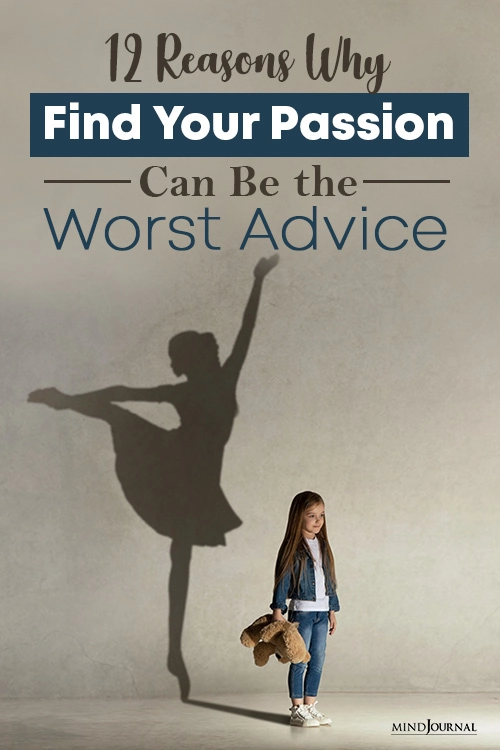
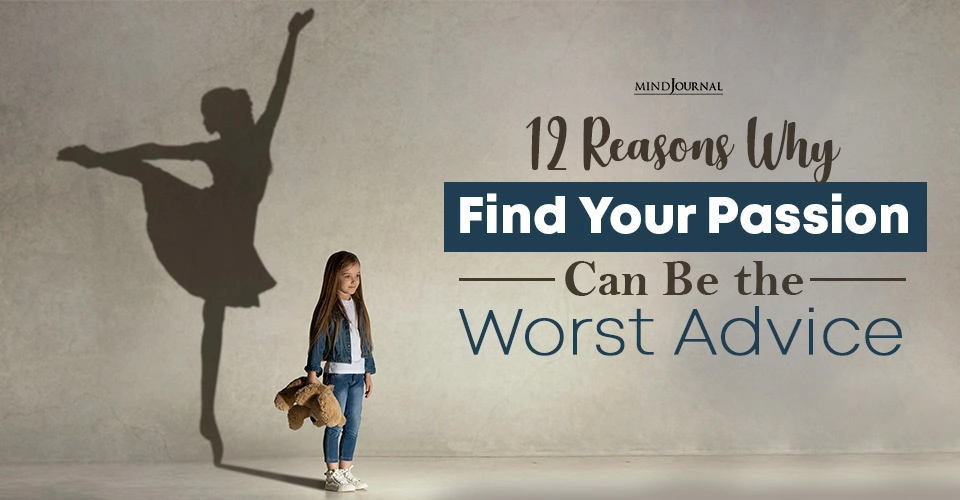




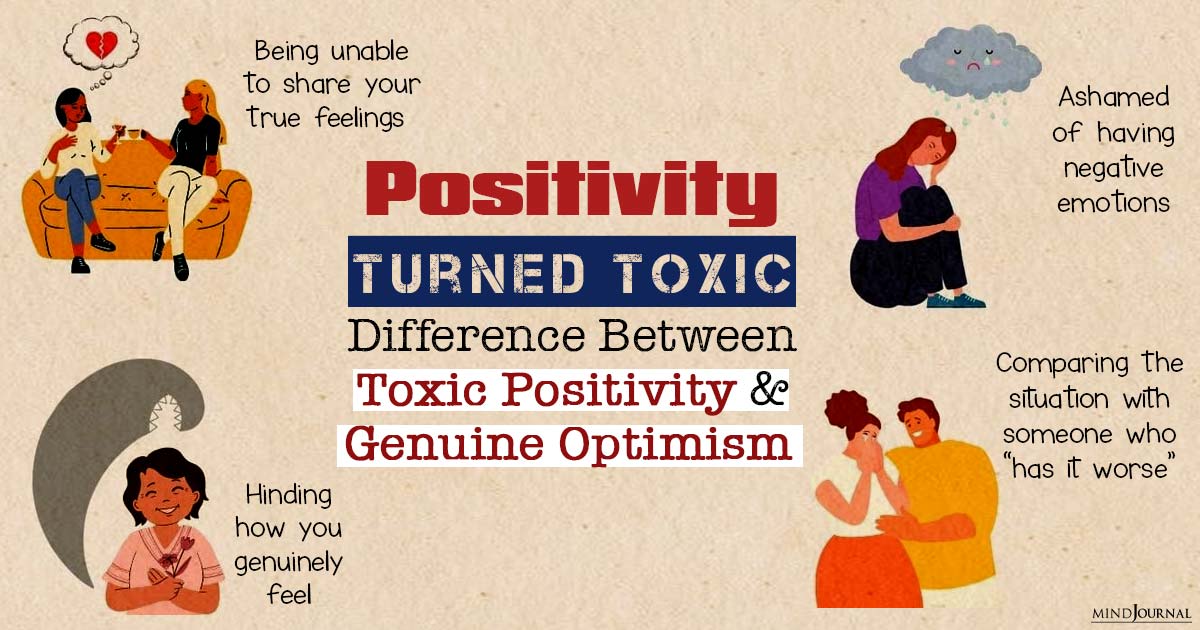

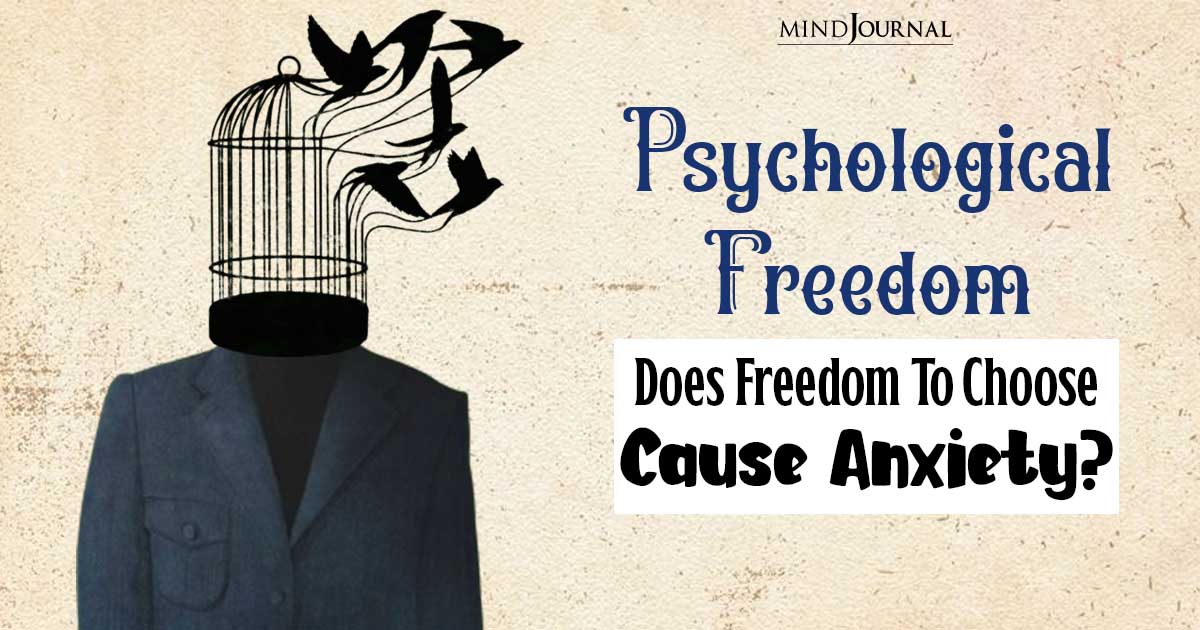
Leave a Reply
You must be logged in to post a comment.